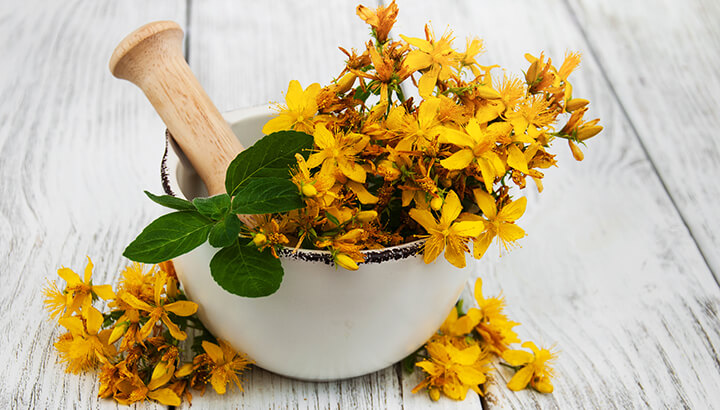
For people struggling with depression, the sadness is more than just a passing mood. This very common mental illness is not only debilitating, it can even be deadly. Due to the severe chronic symptoms associated with depression, those who suffer from it understandably want relief — sometimes by any means possible.
According to the Anxiety and Depression Association of America, Major Depressive Disorder, which affects over 15 million adults in the United States, is the leading cause of disability for people between the ages of 15 and just over 44. Another 3.3 million people in the U.S. suffer from Persistent Depressive Disorder (PPD), a type of depression that is usually chronic for two or more years. That’s a lot of people who need relief.
Since depression can be so debilitating to all areas of life, many people seek medications to diffuse their symptoms. For depression, many physicians prescribe a class of drugs known as selective serotonin reuptake inhibitors, also known as SSRIs. It is these drugs that are often simply called “antidepressants.”
Side effects of antidepressants
While these types of medications may have positive results for some people, they come with a laundry list of side effects — and potential dangers. Just a few of the side effects of taking SSRIs include:
- Headaches
- Rash
- Blurred vision
- Sexual dysfunction
- Dizziness
- Agitation
- Joint pain
- Dry mouth
- Drowsiness (sometimes reported as feeling “zombie-like”)
…And those are just the normal side effects. In severe cases, SSRIs may lead to muscular spasms, tics, suicidal thoughts and serotonin syndrome, which can be highly dangerous if not addressed immediately. Two common types of antidepressants (fluoxetine and paroxetine) have even been linked to birth defects. It’s scary stuff.
Fortunately, for those looking for a natural way to combat symptoms of depression, there are many treatments to try. The following are seven, and they work especially well in combination.
1. Exercise

Although depression may make it very difficult to get up and get moving, the benefits of doing so are vast. Although it’s in the beginning stages, some research has found links between exercise and alleviation of depression symptoms. When you exercise, especially when you do some cardio to get your heart pumping and the blood flowing through your body, your body is flooded with endorphins. These endorphins make you feel good naturally.
It is especially helpful to exercise outside whenever the weather permits (more on that in the next category). So, even if you feel like staying on the couch, getting outside and running, walking briskly, cycling, swimming or rollerblading can have a lot of positive effects on your mood (and your health in general). Aim to get 30 minutes of cardiovascular exercise as often as you can. Every day is ideal!
2. Sunshine
Mother Nature truly is a powerful healer. When you get outside in the sunshine, something amazing happens to our bodies and minds. There is evidence that this “eco-therapy” can alleviate many types of mood disorders, including depression. One of the many reasons is vitamin D. The sun is our main source of this important vitamin, and if your levels are low, you may feel increasingly depressed.
A lack of vitamin D is one of the main underlying causes of Seasonal Affective Disorder (SAD), a form of depression that many people experience during the winter months. While sunshine alone may not completely take care of a major depression, it can certainly help if used in combination with other natural methods. So, get outside in the sun as often as you can to soak in those rays.
3. Meditation
Meditation is a powerful practice that can go far in healing both the body and the mind. It has been found to be incredibly useful for alleviating both anxiety and depression. When you center your mind, you find a place of stillness between the churning thoughts that may bring you down. Training your mind to find this place can work wonders.
If you’ve never meditated, all it takes is a comfortable, quiet space and some dedication. You can find guided meditation tutorials online. If you want extra guidance or others to meditate with, look up guided meditations in your area. There are many different types to choose from, so you’re bound to find the group that’s perfect for you.
4. St. John’s Wort

If you’re looking for an herbal antidepressant, one option to ask your doctor about is St. John’s Wort. This herb has been used for centuries for many medicinal purposes, including the treatment of nervous conditions. If your depression is mild or moderate, St. John’s Wort may help to lift you out of the funk.
One note of caution: Since this herb may interact with certain medications, and may also lead to serotonin syndrome in some cases, it is important to consult a health professional you trust before you begin taking it, to make sure it is safe for your individual health. Always buy herbs from a source you trust — many imposters exist on the market.
5. Magnesium
One vital thing to remember if you suffer from any level of depression is to make sure you’re getting enough magnesium in your diet. This mineral is key in the body’s maintenance of energy, the regulation of heartbeat and the chemical function of the brain. If you’re not getting enough magnesium, you may experience depression and other mood disorders.
To get more magnesium in your diet, make healthy, whole foods such as pumpkin seeds, bananas, nuts, black beans, quinoa and leafy greens a regular part of your meals.
6. B vitamins
B vitamins are important for nearly every function in the body, so it’s important that you’re getting enough of them. If you’re not getting enough B12, for example, you may experience depression and other mood disturbances, as B12 is important for optimal brain health. Other B vitamins contribute significantly to brain health, as well.
To get more B vitamins into your diet, enjoy whole foods such as leafy green vegetables, avocados, bell peppers, fatty fish (which also contain brain-supporting omega-3 fatty acids), organic cheese and free-range turkey.
7. Counseling

Building an open and trusting relationship with an experienced therapist is one of the most powerful treatments for depression out there. If you have been struggling, it’s really worth it to give counseling a try. If the first counselor you see isn’t a good fit, don’t give up! It may take some time to find someone who you can open up to, but the benefits of doing so are immeasurable.
While it may be tempting to take antidepressants for a “quick fix,” why not try some natural options first? They’re safer, and they may help more than you think. Give nature a chance.
— Tanya Mead

